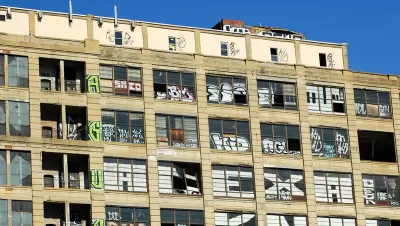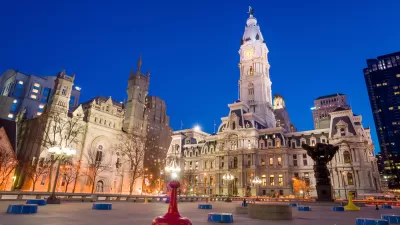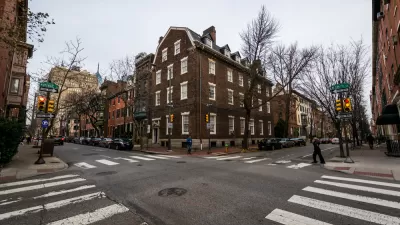The legislative quid pro quo is being used by members of the city council for the wrong reasons, leaving neighborhoods throughout the city in limbo.

Inga Saffron writes about the history and impacts of Philadelphia’s councilmanic prerogative, a practice that gives individual district councilmembers an inordinate amount of decision-making power:
Although the name sounds genteel and mannerly, the maneuver can turn an ordinary, mild-mannered district councilperson into power-mad feudal lord. No matter what craziness a local representative proposes, the rest of Council will vote in lockstep, no questions asked, knowing the favor will be returned when they want approval for a special measure in their own district. Usually the special bills involve property sales and zoning.
The Home Rule Charter in Philadelphia supports the prerogative, says Saffron, because it gives the city council final say on land sales and zoning changes and limits the authority of the planning commission.
Councilmembers have halted, thwarted, or left in limbo project after project through use of the prerogative, also known as "legislative courtesy," in their political wheeling and dealing. When projects do not move forward, the result is lingering blight, destruction of neighborhoods, and compromised public safety, says Saffron.
The prerogative violates the basic role of the legislature as part of a system of checks and balances, argues Saffron. She wants to see it eliminated, but she is not confident this will ever happen. "If Philadelphia ever hopes to realize its potential as a modern city, it’s going to need a constitution fit for the 21st century anyway. One where councilmanic prerogative doesn’t have the final word on the look of the city."
FULL STORY: How an obscure City Council rule leaves a trail of blight in Philadelphia

Trump Administration Could Effectively End Housing Voucher Program
Federal officials are eyeing major cuts to the Section 8 program that helps millions of low-income households pay rent.

Planetizen Federal Action Tracker
A weekly monitor of how Trump’s orders and actions are impacting planners and planning in America.

Ken Jennings Launches Transit Web Series
The Jeopardy champ wants you to ride public transit.

Washington Legislature Passes Rent Increase Cap
A bill that caps rent increases at 7 percent plus inflation is headed to the governor’s desk.

From Planning to Action: How LA County Is Rethinking Climate Resilience
Chief Sustainability Officer Rita Kampalath outlines the County’s shift from planning to implementation in its climate resilience efforts, emphasizing cross-departmental coordination, updated recovery strategies, and the need for flexible funding.

New Mexico Aging Department Commits to Helping Seniors Age ‘In Place’ and ‘Autonomously’ in New Draft Plan
As New Mexico’s population of seniors continues to grow, the state’s aging department is proposing expanded initiatives to help seniors maintain their autonomy while also supporting family caregivers.
Urban Design for Planners 1: Software Tools
This six-course series explores essential urban design concepts using open source software and equips planners with the tools they need to participate fully in the urban design process.
Planning for Universal Design
Learn the tools for implementing Universal Design in planning regulations.
Heyer Gruel & Associates PA
Ada County Highway District
Institute for Housing and Urban Development Studies (IHS)
City of Grandview
Harvard GSD Executive Education
Toledo-Lucas County Plan Commissions
Salt Lake City
NYU Wagner Graduate School of Public Service




























